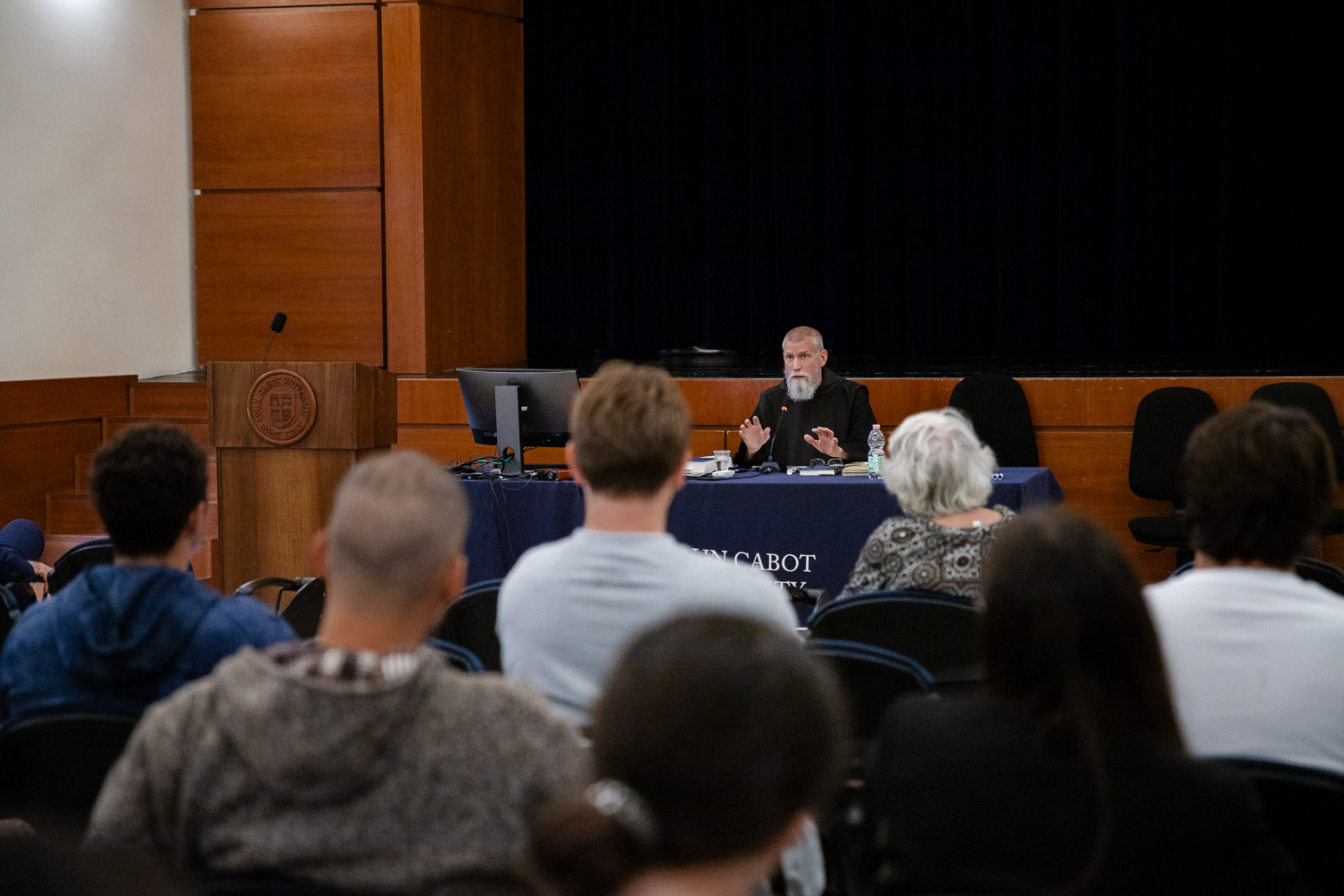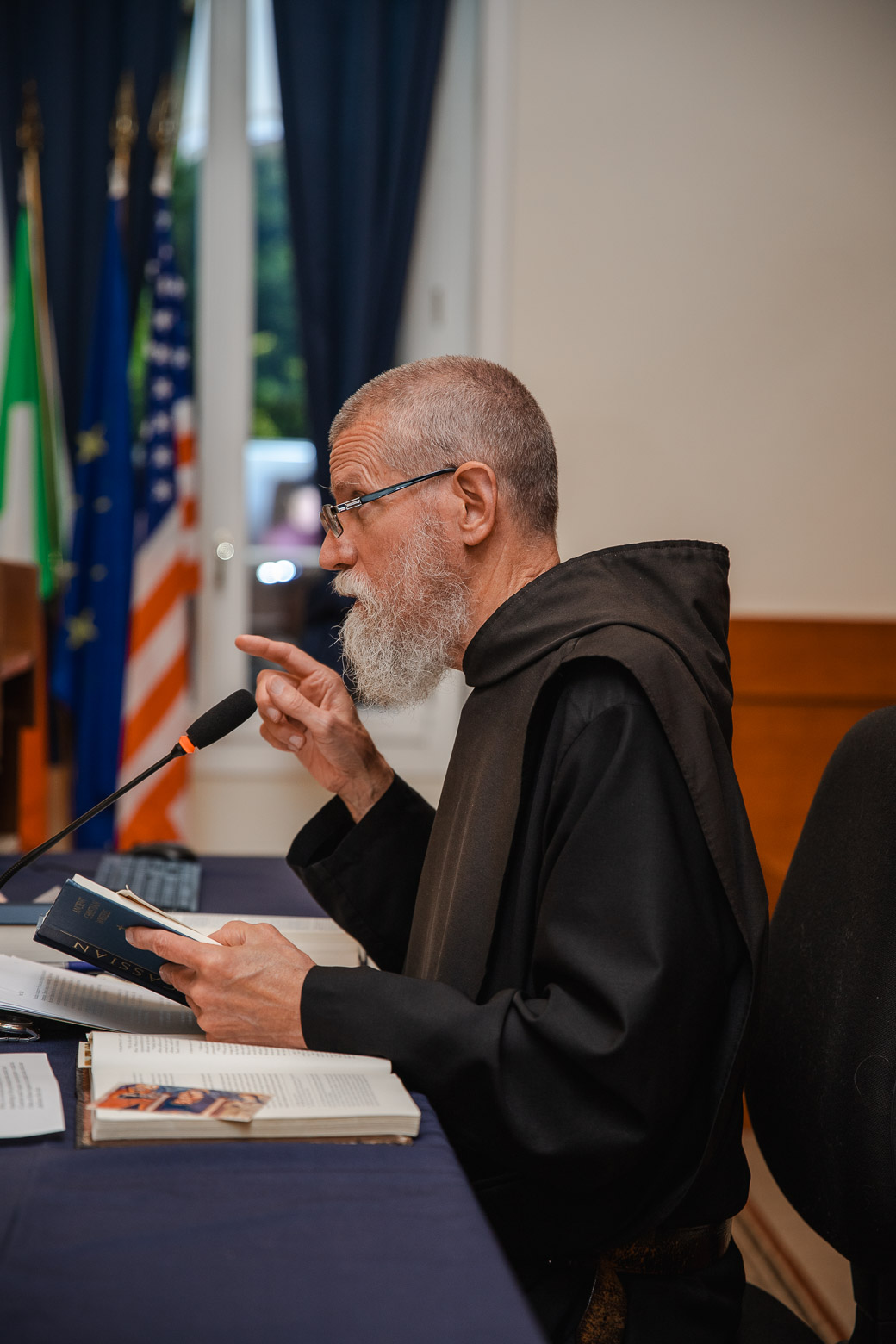“Work: Profit or Person?”: John Cabot University Welcomes Father Cassian Folsom for a Lecture on Monastic Tradition
On Tuesday, October 8th, Father Cassian Folsom, Order of Saint Benedict, founder of the Abbey of St. Benedict on the Mountain (Norcia, Umbria) and professor of liturgy at the Pontifical Athenaeum of Saint Anselm in Rome gave a talk titled “Work: profit or person? Insights from the Monastic Tradition.” The purpose of the talk was to discuss the role of monastic tradition in the contemporary world of work and to show how the topic of work sits at the intersection between the humanities and business. The event was organized by Professor Fabrizio Conti from the Department of History and Humanities with the support of Professor Silvia Pulino, the Director of the Frank J. Guarini School of Business. A lively discussion with students followed the presentation.

Fr. Folsom’s Presentation: the Rule of Benedict in our Modern World
The monastic tradition and the teachings of the Church fathers, like Augustine of Hippo, as well as late antique and medieval Christian traditions, constitute an important moment in the development of some of the tenets of Western civilization. Folsom pointed out that the Rule of Benedict of Norcia, composed in 534 AD and still followed by many monks, nuns and lay people today, gave rise to one of the first religious organizational realities in Europe, where the dimension of work was and still is of primary importance. Following the fall of the Roman Empire, during the complex reality of early medieval times, members of monastic communities devoted themselves to their tasks, yet always paid attention to all other aspects of life. The Rule of Benedict teaches how work, while central to the life of the monk as well as of humanity in general, is nevertheless not the only aspect to be considered, but must be cultivated in the context of a harmonious life.

Otiositas, Acedia, Otium and Negotium
As Folsom underlined, according to the Benedictine Rule, work serves the individual in avoiding otiositas, which is nullified, useless, and wasted time that in turn can lead to acedia, a state of torpor that has serious psychological implications. Otium, on the contrary, is a positive thing, since it is the use of free time for creative purposes. In addition to this, negotium is the time dedicated to business, which although useful and necessary, should have a more specific purpose in order to be more fulfilling. This was one of the topics introduced during Folsom’s presentation: can one work just for money? Folsom’s answer is clear: a work activity that has profit as its only goal is certainly less enriching and sustainable than working with a sense of purpose, which is, in the end, something that every human being needs. According to the monastic approach, it is this purpose that brings joy to one’s work and gives one greater results.
Work Should Not Be Just About Money
What was highlighted during Folsom’s talk is how the monastic experience in its ability to illuminate and discuss work-related aspects can still be relevant today. As a source of wisdom and inspiration, the monastic way of life is being increasingly rediscovered today by companies, business leaders, and managers eager to empower themselves and enrich their skills, such as mindfulness and the ability to focus and cooperate. All skills which, as the monastic tradition indicates, are essential and permanent elements in the construction of healthy working habits and one’s well-being.





